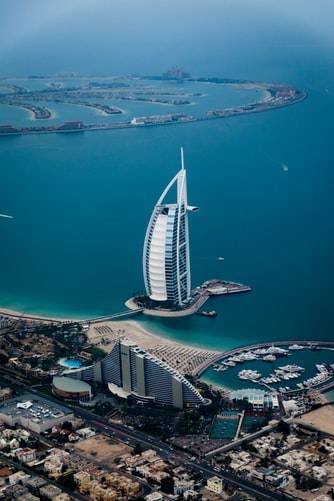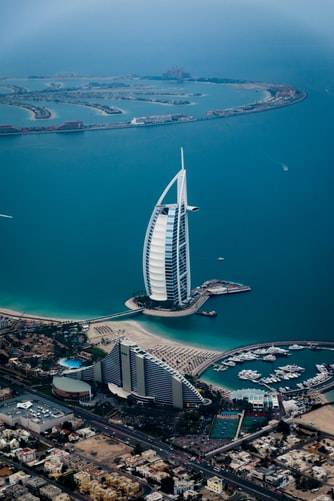The Dubai real estate market is emerging from a six-year crisis, driven by wealthy international investors fleeing COVID-19 lockdown measures in their home countries. These investors are leading significant purchases of luxurious residential units in the Gulf emirate. Recently, luxury villas have become the most attractive units in the Dubai real estate market, with European buyers in particular seeking properties on the artificial Palm Jumeirah island, as well as those located near golf courses.
Zan Zuchinski, the managing director at the consulting firm Property Monitor, told AFP that the Dubai real estate market, which saw a decline since 2014, fell into a slumber when the COVID-19 virus spread last year and Dubai closed its doors. However, he noted, "Immediately after that, after the lockdown period, we began to witness an increase in transaction volume, and it hasn't stopped since." He added, "We are now seeing record gains on a monthly basis in terms of transaction volume."
The Gulf emirate became one of the first global destinations to reopen to visitors in July last year, successfully blending an open-door policy with strict social distancing rules, alongside launching one of the world's fastest vaccination programs. Despite a rise in COVID-19 cases in 2021 as tourists flocked to the emirate, life continued normally while restrictions caused stagnation in other cities. Zuchinski remarked, "Fleeing from lockdowns in other countries? I think we see many of them here," pointing to additional appeals such as the decision to allow foreign ownership of companies without needing a local partner.
The influx of visitors has revitalized tourism, which for a long time was the backbone of Dubai's non-oil-dependent economy, helping it recover and return to pre-COVID-19 levels by April of last year, according to the IHS Markit consultancy group. Economist David Owen from the group stated, "Travel and tourism companies recorded the most notable recovery in performance amid rising hopes for increased tourist activity later this year, supported by the rapid distribution of vaccines."
After years of stagnation and a decline in the real estate sector's shares, there has recently been a notable increase in the buying and selling of luxury properties valued over 10 million dirhams ($2.7 million), with 90 deals signed in April compared to about 350-400 annually, according to Property Monitor. A palace on the Palm was sold for 111.25 million dirhams, the highest price achieved in years in the area that features 16 fronds lined with luxury homes and vehicles.
The highest-priced property currently on the market is a modern villa inspired by Italian architecture, located at the end of one of the fronds and surrounded by a private beach, listed for 100 million dirhams. Following the downturn in the real estate market during the peak of the pandemic, developers hope that one of the wealthy buyers will be tempted to purchase this unit, which includes a pool and cinema.
Matthew Batt, the CEO of Black Brick Real Estate, stated, "I think people are starting to realize that Dubai is no longer just a construction site; perhaps that was ten years ago when we had the most cranes in the world." He added, "People are now looking at Dubai and saying: I'm going to move my headquarters here. I can work from Dubai and simultaneously manage businesses in Europe, North America, or Asia," adding, "I think what COVID-19 ultimately did is it opened our doors to the rest of the world."
However, in a volatile market that has generated much wealth only to lose it, there is tension regarding the sustainability of the recent sudden increases. Property sales exceeding 10 million dirhams rose by 6.7 percent in April compared to the previous month, with 81 villas sold on the Palm in April alone compared to 54 for the entire year of 2020, according to Property Monitor. Even with significant gains, the sector is still far from its highest levels in 2014, amidst a continued decline in the apartment market.
Nonetheless, financial services company Morgan Stanley stated in a recent report that this upward trend is unlikely to halt anytime soon. It credited "strong demand and peak growth in supply... which could lead to a more robust market in the coming years," attributing this to "a wave of government reforms over the past 12 months, attractive mortgage rates, and a shift in demand patterns due to COVID-19."




